“Every atom belonging to me as good belongs to you.” - Walt Whitman, Song of Myself
Inside this issue:
A tomato volunteer and some thoughts about what it really means to bloom where you are planted
Independent Bookstore Day is TODAY: where to find local events and stores
Walt Whitman’s song and Jennifer Crandall’s vision: I can’t stop watching
Birdsong on the Delta
Taking Root Where You Land
I was weeding the backyard this morning when, among the grass, dandelions, oxalis, and the thorns of a fallen bougainvillea branch, I found a young tomato plant. A volunteer, a gardener would say. As if the seed had raised a hand and offered to settle down there.
If the seed had any choice in the matter, I’m guessing it would have picked the richer soil of the raised bed over the fence and about 25 feet away. We don’t know which of our plants it came from or if it was dropped by a bird flying over the fence from our neighbor’s garden.
I wasn’t going to write about that tomato plant but it won’t leave me alone. Oddly, I think it has something to do with a really wonderful book I’ve been reading: A Map is Only One Story: Twenty Writers on Immigration, Family, and the Meaning of Home. Each writer in the anthology has a singular voice and a story that could only come from someone who is rooted in more than one culture, country, family or all three. Some are “volunteers” -- they chose to leave the country of their birth for a new home. For others, the decision was out of their hands; they came with parents or were born several generations later. Some are the offspring of mixed cultures and races.
“For Nana, India had changed. He was an estranged returnee, distant and removed. His past belonged to someone else, and his children were simply tourists in a foreign land.” -Nur Nasreen Ibrahim “Return to Partition” from A Map is Only One Story: Twenty Writers on Immigration, Family, and the Meaning of Home.
The tomato and the book got me thinking about that ubiquitous advice plastered in memes and headlines: “Bloom where you’re planted.” This is usually interpreted to mean learning to thrive where you find yourself or, if you are of a religious bent, live the life God’s given you.
In theory, I love the idea of focusing on the beauty within reach. In reality, it is sometimes tough to embrace. For one thing, if humans had followed this advice and never moved from where they started, the world would look very different right now. For another, it blows right by the fact that some people, through no fault of their own, are “planted” in the middle of an arid thorn patch with few prospects for growth while others, also through no fault of their own, are born in comfortable surroundings full of rich nutrients. The phrase really should read: “Bloom wherever you land, or die trying.”
“They are the life we could have lived together, and the ones we lived apart. They are a family carrying their same blood to separate lands. They are two ends of a phone call, coiled and stretched thousands of miles, longing to be close enough to whisper.” - Natalia Sylvester, “Mourning My Birthplace” from A Map is Only One Story: Twenty Writers on Immigration, Family, and the Meaning of Home.
I realize that the “Bloom” metaphor probably was not intended to apply to migration. It appears to be intended as a hopeful greeting card message to people who may miss being all they can be because they are unsettled in themselves or yearning for something they can’t have. Still, I resist it. Embedded within the phrase there is the message: don’t aspire, stop wanting, stay in your lane. You do your blooming there, I’ll do mine here.
Reading the essays in A Map is Only One Story reminded me that uprooting means loss, risk, hope, conflicted feelings, unintended legacies, disappointment, trade-offs along with love, family, joy. Sometimes a person lands in inhospitable, if not hostile, surroundings, sometimes she wakes up in a body that makes her “other” wherever she goes. It is hard work to bloom; it is hard work to make a home, a life.
“So I am sitting on a long thing — on the colored fence dividing America — buffeted upright by the shots from both sides, and I cannot fall to any side.
This was not the dream.” -Kenechi Uzor, “This Hell Not Mine” from A Map is Only One Story: Twenty Writers on Immigration, Family, and the Meaning of Home.
I like the idea that our volunteer tomato escaped and will probably give rise to a tomato that is different, even if only slightly, than the one from which it sprang. This is what happened a few years ago when several heirloom varieties apparently mated and then traveled from our front year and leapt the fence into the alley. With a little water, they thrived among the thistles and the cheese plant and yielded hybrids that were delicious. This is why I didn’t pull out the latest volunteer. Instead I ended up clearing the space around it and bringing over some better dirt, a little water. On its own, it may bloom where it landed but it stands a better chance if I help.
FYI: As a species, the tomato has a long history of migration from its native Andes where the fruit grew wild. There are still wild tomatoes in Peru. Here’s a very short read of the history of tomatoes. And here’s a 2011 interview with Barry Estabrook about what happened to the tomato post-migration as detailed in his book, Tomatoland: How Modern Industrial Agriculture Destroyed Our Most Alluring Fruit.
Be Independent: Support Your Local Bookstore
Today is Independent Bookstore Day.That means that your local bookstores are opening soon with events, freebies, and books in person and online. Here, for example, is the annual San Diego Book Crawl 2021. If you are ready to head out and be in the world again, check out what is going on near you and buy a book. All bookstores let you purchase online too. Here are two hand bookstore locators from Bookshop.org and Indiebound to help you get started.
I Can’t Stop Watching Whitman Alabama
“Verse after verse, story after story I have fallen so hard for this amazing telling of Song of Myself.” - Cyndi, San Diego
When I asked last week for you all to send me a poem to help close out our observation of National Poetry Month, Cyndi of San Diego sent me a link to filmmaker Jennifer Crandall’s Whitman Alabama. I am blown away by this project and regret not knowing it’s been out there since 2017 available for viewing anytime I want. If you are not familiar with it, or have not seen it in a while, this is a good time to watch and listen to this extraordinary work.
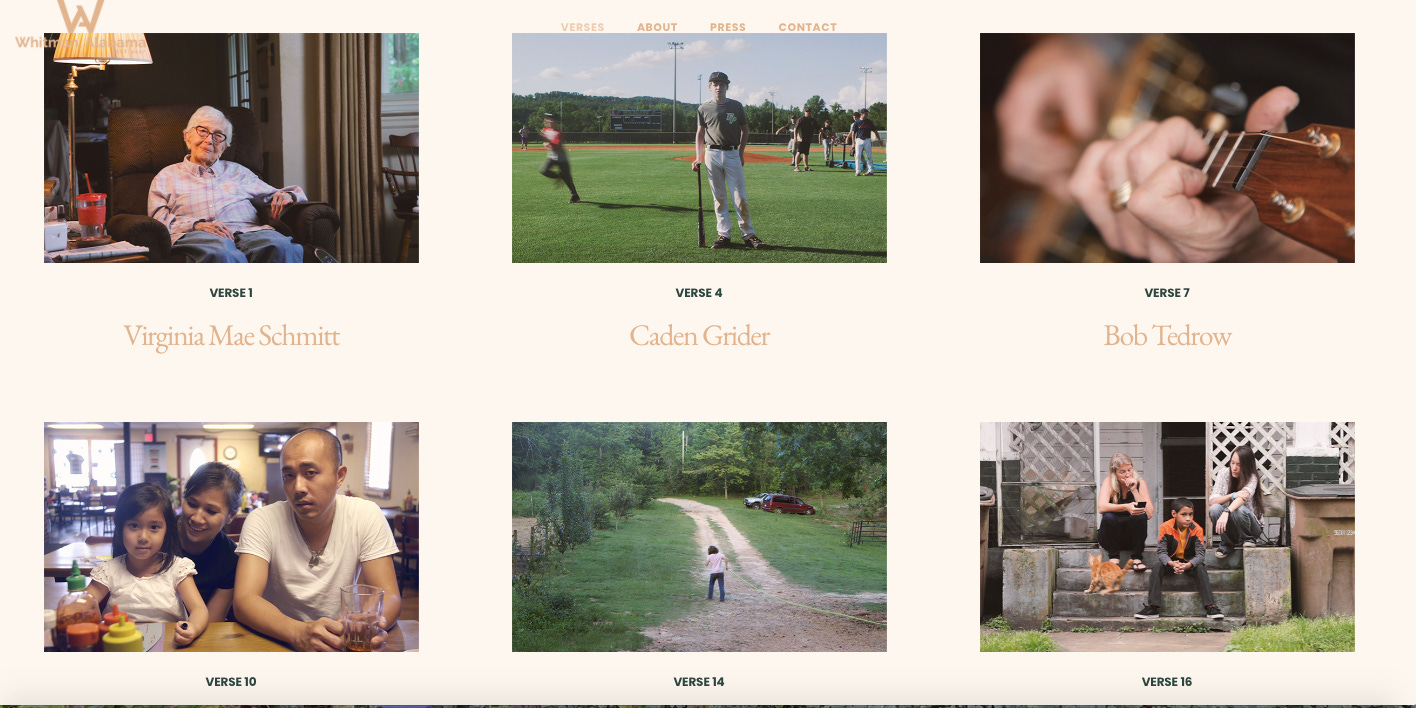
Crandall called the project “an experiment in using documentary and poetry to reveal the threads that tie us together — as people, as states, and as a nation.” For two years, she crisscrossed the state of Alabama, asking people to share part of themselves and their lives through the words of Walt Whitman’s poem, “Song of Myself.”
Beginning with Verse 1 read by Virginia Mae Schmidt, then 94, Each of the 51 verses is delivered in ways you will not expect and that will leave you teary-eyed more than once. Each video is accompanied by a little bit about the family and how they came to the project along with the text of the entire verse.
Jennifer Crandall grew up hearing the question “what are you?” Part White, part Chinese, she was born in Ethiopia and grew up in Pakistan, Bangladesh, and Haiti. You can read about her and how this project came about in this interview with Asian American Writers Workshop.
Also from the Spark Community
Sparker Mary N. offers this spine poem and a recommendation - “I met Tanaya Winder and read her work. Love her!”
That’s it for this week. Where possible, the books listed here today are available at the Spark Community Page at bookshop.org where every sale supports independent bookstores and, if we buy enough books together, can help us support literacy programs. Today, though, try to find the books you want to read at your local bookstore. They need us. We need them.
Let me know how you are and what you are reading, want to read, what you’re thinking about, hating, loving — all the things. I love hearing from you. If you know anyone who wants to join in, pass this issue along and invite them to subscribe. Here are two buttons to help with that:
And if you spot any stray plants in your yard, may it be a tomato.
Gratefully,
Betsy
P.S. And now, your moment of Zen: Birdsong at Sunset on The Sacramento Delta
This is from editor, writer, sailor and Spark community member Jennifer Silva Redmond.
Click here to watch the brief video and listen to the birds.
Calling for Your Contribution to “Moment of Zen”
What is YOUR moment of Zen? Send me your photos, a video, a drawing, a song, a poem, or anything with a visual that moved you, thrilled you, calmed you. Or just cracked you up. This feature is wide open for your own personal interpretation.
Come on, go through your photos, your memories or just keep your eyes and ears to the ground and then share. Send your photos/links, etc. to me by replying to this email or simply by sending to: elizabethmarro@substack.com. The main guidelines are probably already obvious: don’t hurt anyone -- don’t send anything that violates the privacy of someone you love or even someone you hate, don’t send anything divisive, or aimed at disparaging others. Our Zen moments are to help us connect, to bond, to learn, to wonder, to share -- to escape the world for a little bit and return refreshed.
I can’t wait to see what you send!




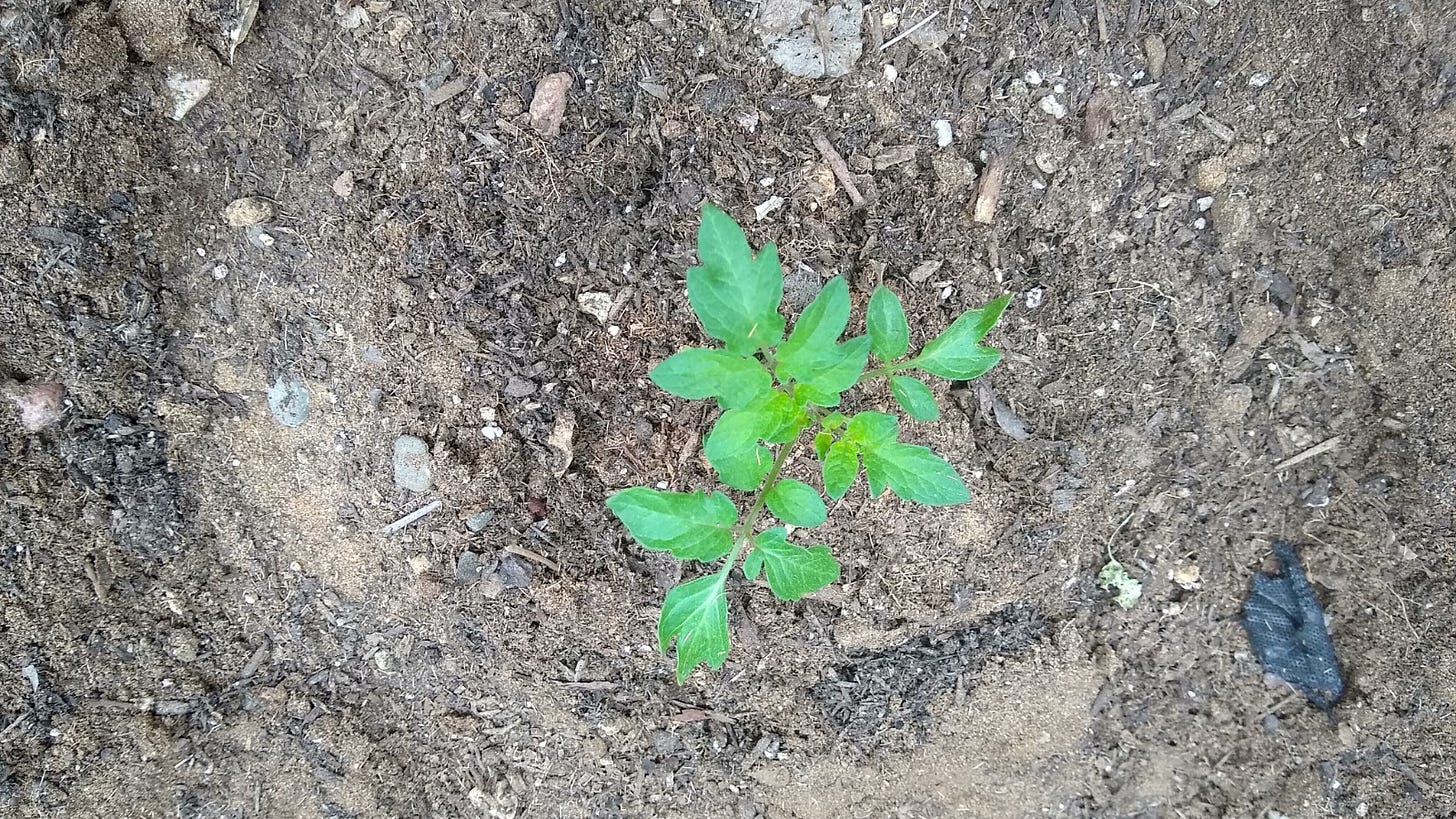
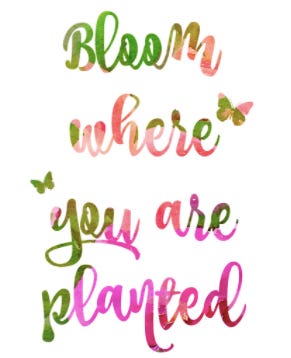
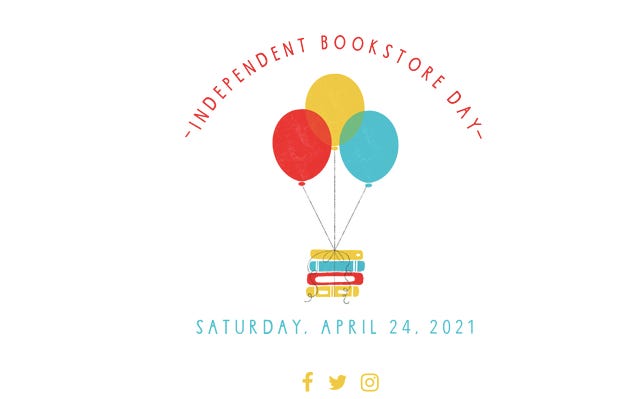
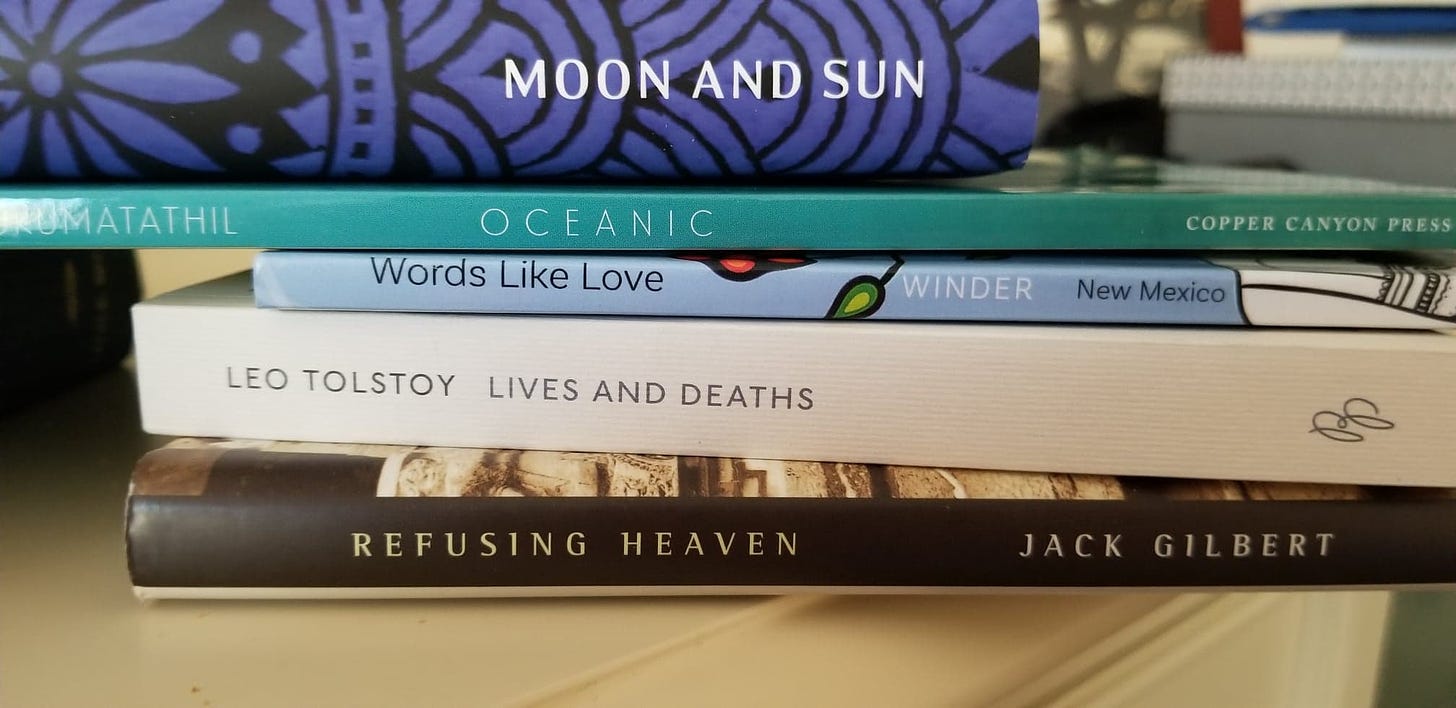
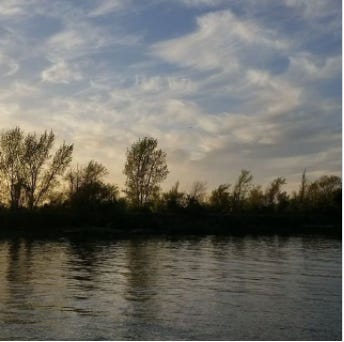
'home is where you land' is so true and says everything